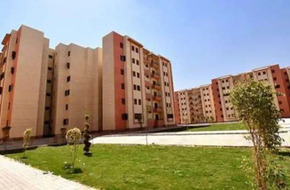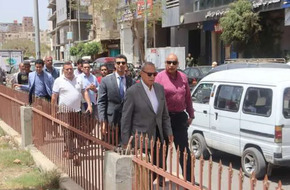Egypt's economy stabilizes, for now, as Arab pledges buy time
CAIRO - Egypt's ailing economy has stabilized somewhat after this month's military intervention unlocked billions of dollars in aid pledges from Arab nations—a development several economists see as a temporary reprieve from the economic woes that overwhelmed ousted President Mohammed Morsi.
For more than two years since the 2011 overthrow of Hosni Mubarak, the economy of the Arab world's most-populous country has teetered toward meltdown, helping to fuel protests that drove three changes of government in as many years, including the exit of the military council that preceded Mr. Morsi.
Egypt's new leaders, an interim civilian government installed by the military, have said that fixing the economy is high on the agenda. The civilian technocrats include Prime Minister Hazem El-Beblawi, a liberal economist, and interim Finance Minister Ahmed Galal, an economist who managed the Economic Research Forum, a regional institution covering the Arab countries, and worked for 18 years with the World Bank, providing policy advice to countries in Latin America, the Middle East and Asia.
But leaders have shown little sign they can muster the political will anytime soon to take on tough problems, including overhauling energy and food subsidies that account for about one-third of all government spending.
"There is a difference between managing the crisis to avoid complete bankruptcy and actually tackling real economic problems like structuring subsidies," said Amr Adly, a political economist and postdoctoral fellow at Stanford University.
Since the military overthrew Mr. Morsi on July 3, food and fuel prices have stabilized. Stocks have surged. Egypt's currency has stabilized.
The gap between the Egyptian pound's official and black market rate has almost disappeared, with the official price settling at 6.99 Egyptian pounds to the dollar and the black market rate close behind at 7.1—a narrowing of a spread that in recent months had been as wide as two pounds.\nEconomists have attributed the change to the $12 billion in aid pledged by Egypt's Gulf neighbors. The pledges have allowed Egypt to bolster its dwindling foreign reserves and eased the urgency to sign on to the International Monetary Fund's stipulations for a proposed $4.8 billion loan.
Just days after the pledges came in from Saudi Arabia, the United Arab Emirates and Kuwait, Egypt's new interim planning minister, Ashraf El-Araby, signaled that his government may be able to navigate the planned six-month transition to a permanent government without the IMF loan.
Egypt has struggled over the past tumultuous years to pay for imports, including the food and fuel it provides at slashed prices. Since the beginning of 2013, Egypt's budget deficit has widened to 11% of gross domestic product, while foreign reserves dwindled to a critical level of $14.9 billion at the end of June. The country's central bank began to hold exceptional foreign currency auctions in December to gather cash to pay for basic necessities such as cooking oil, fish and rice.
For now, foreign firms have largely hunkered down in Egypt, but without expansion. Investor confidence in Egypt's stock market was damped earlier this year when Orascom Construction Industries, the market's biggest listed company, announced that it would eventually delist from the exchange to continue trading in Amsterdam. OCI N.V., the Netherlands-based parent of OCI, has sought to buy out the remaining shares in Egypt.
The optimism that has greeted Egypt's new leaders is warranted but must be tempered, some economists say. Because the government doesn't have an electoral mandate, it isn't likely to undertake politically difficult changes these people say are needed and from which previous governments have shied.
The interim leaders won't be able to sign on to the IMF's loan, many economists say, citing public disapproval both for the loan itself and for the overhauls that would be needed to reach the IMF's targets.
"Given the inflammatory political environment in Egypt, I don't think the IMF will come to terms with Egypt," said Steven Hanke, a professor of applied economics at Johns Hopkins University. "I don't think the current government will be able to cut subsidies. Right now, that's asking the impossible."
The IMF, for its part, typically engages only with governments that the international community widely recognizes as legitimately installed. Given that the IMF's board represents the world's powers, the fund isn't likely to re-enter bailout negotiations with military authorities in Cairo or its installed government without such international consensus. It is unclear how long that process could take.
The fund has maintained technical contacts at the bureaucratic level with Egyptian finance officials,including at the central bank and the finance ministry, said IMF spokesman William Murray. "But there has been no contact with the current government in Egypt," he said on Thursday.
Despite the short-term optimism, Egypt will continue to face high unemployment and a widening fiscal deficit exacerbated by the inefficient subsidy program.
Egyptian unemployment—currently at 13%, according to government statistics—could reach 14 or 15 percent, several economists warn.
Although prices have somewhat stabilized with the Egyptian pound in July, June's recorded inflation jumped to 9.8% from 8.2% in May, the highest the country witnessed since the uprising that toppled Mr. Mubarak more than two years ago.









Comments